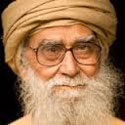

By Maulana Wahiduddin Khan for New Age Islam
29 July, 2015
Scholars have expressed a range of opinions on what they think is the key to understanding the Quran. Some believe that one must know 15 different disciplines in order to understand the Quran. Some contend that for this purpose, the most important thing is to know the Shan-e Nuzul or occasions of revelation of different Quranic verses. Others think that the best way to understand the Quran is through understanding the Quran through the Quran itself. Yet others think the most crucial thing in understanding the Quran is the order of the verses and the chapters of the Quran.
The fact, however, is that all these claims are correct only in a partial sense, and not in a total sense. There are two levels of Quranic comprehension—the first is the Quran, and the second is the applied Quran. The first level in understanding the Quran is to know how those who lived at the time when the Quran was being revealed understood it. The second level of understanding the Quran is to try to understand what its applied meaning is in the context of the changed conditions of today.
The above-mentioned conditions for understanding the Quran can be helpful only in understanding the Quran at the first level. But as far as the second level of Quranic comprehension is concerned—that is, understanding its applied meaning in the contemporary context—these conditions are by themselves insufficient. The only benefit of understanding the Quran at the first level is that the Quran becomes for one an understandable book in the historical sense, but as far as far as the present age is concerned, today’s people will not gain be able to gain much guidance from it. They will accept the Quran only as a matter of belief, but it will not be possible for them to make the Quran as a living guide for contemporary life, although the actual significance of the Quran is that it is a book of guidance meant for all times and for all people.
Consider, in this regard, Surah Yusuf, a chapter in the Quran. God has referred to the story of the Prophet Yusuf or Joseph that is recounted in this chapter as the ‘best story’. This indicates that this chapter narrates something unusual.
In the commentaries on the Quran that have been written in Arabic and other languages, there is considerable discussion about this chapter of the Quran. But one gets no clear guidance from any commentary as to why the story of the Prophet Joseph is the ‘best story’. Reason demands that if this story is the ‘best story’, then its being best cannot be simply in the sense of the distant past but that it is best in that it provides some beneficial guidance for the present-day, too.
Reflecting on this matter from this angle, it appears that the term ‘best story’ that appears in this chapter of the Quran is actually in the sense of ‘best method’—that is, the best method of action.
The story of the Prophet Joseph appears in both the Quran and the Bible. In the Prophet Joseph’s time, Egypt was under monarchical rule. At that time, agriculture was the biggest department of any government. The then king of Egypt agreed to remain on the throne as the political authority and to give the Prophet Joseph charge of the administration. The law of the land would remain the king’s, while the agricultural system would be in the Prophet Joseph’s control. Thus, the Bible says in this connection that the ruler of Egypt said:
Only in regard to the throne will I be greater than you. (Genesis: 41/40).
The Prophet Joseph lived some 3500 years ago. The king of Egypt in his time agreed that in legal terms, he would retain the position of political authority and that in the non-political sphere; the administration of the land would be in the Prophet Joseph’s hands. This was a sort of political settlement, whereby the king would remain seated on the throne, but as far as the administration of the country was concerned, it was de facto given to the Prophet Joseph to manage.
The Prophet Joseph got this opportunity because of the personal bent of mind of a king as an individual. Now, in terms of applied reflection on the Quran, one can say that in today’s age, this same opportunity is available to all believers in general, because of the changes that have in today’s context. According to the modern concept of Democracy, any ruler is just for a few years. Today, the role of government is essentially to manage the administration of a country. All fields other than the administration, including religious mission, are free. Every individual now has the right to do as he pleases in all the many non-governmental spheres, provided that in seeking his goals he uses peaceful methods and does not foment conflict with anyone else, including ordinary citizens and the government.
As a result of the vast changes in our context, the ‘best story’ has now become a global principle.
This is a case of applied reflection on Surah Yusuf of the Quran. In the light of this interpretation, Surah Yusuf becomes a guide for people today. This same method is applicable for the whole of the Quran. In this way, the Quran becomes a book of guidance for humanity today, whereas if the Quran is studied in the light of the earlier-cited principles of exegesis, it will appear like a story of an age long past.




 Moderate Islamist here
Moderate Islamist here


0 comments:
Post a Comment